Report: Kate Hurst
April is always a busy time at Ormskirk and District Family History Society.
It’s the beginning of our new membership year, and we hope that our programme of events will attract a reasonable crowd. Besides some exciting plans for Dig Up Your Roots In West Lancashire (our first family history event since 2012) on Saturday 5 October 2019, Paul Sherman of the North West Heritage Group will join us for our meeting on Wednesday 24 April, to give a presentation on The Vikings Of The West Lancashire Coast.
If you know anything about the Norse people and their language, you’ll be able to spot hints of a Viking settlement in any place name, just by browsing a decent map, and where you spot a “Thorpe”, “by”, “dale”, “thwaite”, “wick” or a “kirk”, you know you’ve found one.
“Thorpes” and “thwaites” tend to appear in the east; find Hull, in Humberside on any map and nearby you’ll spot Grimsby (as well as Coningsby, Grasby, Wrawby and Catwick), whilst Kirk Hammerton, Bishopthorpe, Kexby, Barlby, Middlethorpe and New Earswick all surround the city of York. If you’ve been to the Jorvik Centre in the city centre, you’ll know that “Jorvik” was the Norse name for what became York. North-east of Kendal, there’s Kirkby Stephen, Nateby, Ravenstonedale, Garsdale, Romaldkirk (thought by some to be named after St. Rumwold, so it translates as “Rumwold’s church” in the same way that Ormskirk means “Orm’s church”) and Middleton-in-Teesdale.
Having ancestors from the East Midlands, I’ve also come across Maltby, Scrooby, Barnby Moor, Walesby, Tithby and Bagthorpe in the region between Sheffield, Louth and Northampton, but there are plenty of examples far closer to Ormskirk!
Many people know the legend about Orm (or Ormr), whose sisters argued over whether he should put a tower or a spire on his church, hence Ormskirk comes from the Old Norse “Ormres kirkja” (“Ormr’s church”). The story says that Orm built both a tower and spire for the sake of peace and quiet, but if you know your history, you’ll know that the spire came first. (If you want someone to blame for the tower, how about the serial bridegroom Henry VIII? After he set about dissolving the monasteries, the bells of Burscough Priory were taken away to Ormskirk parish church, where some bright spark realised that they wouldn’t fit into the spire. Consequently, the tower was built; even today, it’s less than five hundred years old.)
It’s easy to think that everywhere in this area has a Norse name, but dig around and you’ll discover that Speke means “brushwood” in Old English, and Bickerstaffe comes from the Anglo Saxon “bicera staep”, or “the beekeeper’s landing place”. (Quite a charming image.)
Records at the Lancashire Archives suggest people had trouble with Bickerstaffe - it was called “Bikerstath” in 1292, “Bykrstath” in 1529 and “Bykerstath” in 1533 - whilst the Ormskirk parish clerks favoured “Biccursteth” (1660s) “Bickersteth” (as a surname, in 1704), and carefully noted the burial of a stranger “slayne by one of the glassemen being a French man then workinge at Bycarstaff” in December 1600. There’s a detail to make you wonder!
Like Lincolnshire, Lancashire has its share of “by” place names. When you realise that Crosby (from “Krossabyr”) translates as “village with the cross”, Kirkby (“Kirkja byr”) is “village with a church” and Formby means “the old village or settlement belonging to Forni”, and that all come from Norse phrases, their word for village becomes obvious.
Sometimes, the translations paint a vivid picture of the landscape as it was in the years after the first Viking invasion of Britain in 793.
“Burh skogh” means “fortress in the woods”; Augustinian monks founded a priory there in about 1190, and the location was described as “Burscho” in around 1260. Evolving into “Bursco” (1358), it was the place that “Robert of Burscow” called home in 1365. The 1708 probate papers of husbandman Roger Scarsbrike offered two spellings for his address - Borscoe or Burscowe. Clearly, the pronounciation was decided long before anyone settled on the current spelling “Burscough”.
Head towards Southport, you’ll see more evidence of the Norse influence on both land and language. Their coastal settlement “Einulfsdalr” has something in common with those at “Skjaldmarr dalr” and “Scar es brekka” - each combines a personal name with a feature of the land. Hence Einulfsdalr (“Einulf’s valley”), Scar es brekka (“Scar’s hill-slope”) and Skjaldmarr dalr (“Skjaldmarr’s valley”) evolved into Ainsdale, Scarisbrick and Skelmersdale.
You can almost picture three intrepid travellers, pausing at Scarisbrick, where Scar says to his companions, “Right, you two. I’ll stay here on this hill. Einulf, go to that valley in the west. Skjaldmarr, you take the other valley, four miles south-east”.
Talking of Scarisbrick, it’s said to be the largest parish in Lancashire, covering almost 8,000 acres, and here are other Norse names hiding within its boundaries . . . not least, those who actually bear the surname Scarisbrick. (Many can trace their ancestry right back to Gilbert de Scarisbrick, born in 1170, who was known by that name simply because he had an estate where Scarisbrick Hall now stands, or so the Scarisbrick Family Name website informs me.)
The settlement is named as Scarisbrec (1292), Scarisbrek (1341), Scaresbreck (1499), Scarisbreck (1530), Scarsbrek (1536) and Scarisbricke (1637), but there must be countless other variants hiding in the archives.
On your way out to Southport, you might leave Scarisbrick via Hall Lane and Bescar Brow; Hall Lane, presumably, is named for Scarisbrick Hall, but Bescar has more ancient origins.
It may look similar to “Burscough”, but the first part comes from “birch” and the last syllable comes from the Norse “kjarr” (or “swamp”). Perhaps it’s not so surprising that, if you drew a line from Bescar Brow across the map towards the Irish Sea at a particular angle, your pen will go through that affluent area called Birkdale.
Recognisable as “Byrkedale” in 1533 and “Birkdall” in 1750, it takes its name from the words “birki dalr” (birch copse valley); it’s probably reasonable to guess that birch trees flourished in that area when the Vikings were around.
But let’s return to Bescar. There’s a lot of history there; a certain Maud de Birchecar married Richard de Scarisbrick (the great-great grandson of our previously-mentioned friend Gilbert) back in 1364, just thirteen years after the Black Death eased its hold on Europe. The Scarisbrick family papers at the Lancashire Archives give the impression that it was an agricultural area in the years after the restoration of the monarchy in 1660; leases were taken out by Gilbert Gill, a husbandman of “Birsker” (1671), and by yeomen James Blundell of “Birskar” (1715), John Barton or Berscarr (1716) who sounds like he could have been the John Barton of Birscar who pops up in 1724, James Valentine of Birskirr (1725) and Henry Bond of Bescarr (1755). I wonder whether it’s a coincidence that, miles away in South Yorkshire, there is a suburb of Doncaster called Bessacarr?
Almost on the edge of the village with Burscough, you’ll also find Drummersdale Lane. The area was variously recorded as “Drumosdale” (1665), Drombesdale (1699), “Dromesdale” (1712), “Dromersdale” (1741, 1772), and - according to the 1907 Victoria County History of Lancashire - “Drumbles dale” in ancient times. I have yet to discover what the “Drummer-” part means, but there’s clearly a valley at the end of it! It’s interesting to note from a map how very close it is to Merscar Lane, just inside the boundary of Burscough; given how close that area is to Martin Mere, maybe the name could be an English/Norse blend meaning “marsh by the swamp” . . . unless Martin Mere was the swamp, of course?
Although some local people apparently adopted the name of their home village as surnames developed - Formby, Scarisbrick, Ainsdale (people called “Anesdale” and “Anglesdale” appear in parish registers for Churchtown and Ormskirk in the 1600s), Crosby (found in the Ormskirk and Huyton registers in the Elizabethan era) - it’s worth noting that surnames were not commonly used until the fourteenth or fifteenth centuries.
Amongst the Scarisbrick family papers is a reference to William the son of Adam of Greteby being given land by Agnes, the wife of “William son of Ralph” in 1341; it’s an interesting reminder of how people managed to identify themselves before surnames were in common use.
As a family historian, one of my favourite finds is another item from the same collection. On 5 February 1322, “Robert son of Richard son of Robert the Smith of Aghton” (Aughton) gave land to “Gilbert, son of Henry of Scaresbreck”. The twist is that Robert the Smith had previously given the same land to “Richard son of Thomas of Bradehevyd” when he married Robert’s daughter Margery. You could draw a family tree from that, without using a single surname . . .
The next Ormskirk and District Family History Society meeting will begin at 8pm on 24 April at the Guide HQ, Moorgate, Ormskirk; doors open at 7.30p.m. All are very welcome to attend; a £1 donation is requested from non-members, and tea, coffee and biscuits will be available on the night.
Please visit http://www.odfhs.website/index.php/meetings or see the event listing on Facebook at https://www.facebook.com/events/1091164207722119/ for more information.
|
|
||||||
|
WANTED: YOUR NEWS AND STORIES FOR ORMSKIRK
Phone / Txt Roger on 0754 3955 841 Email local news to us including image(s) ormskirk@qlocal.co.uk Follow / Report to us on Twitter @QlocalOrmskirk
WANTED: YOUR NEWS AND STORIES FOR ORMSKIRK
Phone / Txt Roger on 0754 3955 841 Email local news to us including image(s) ormskirk@qlocal.co.uk Follow / Report to us on Twitter @QlocalOrmskirk 
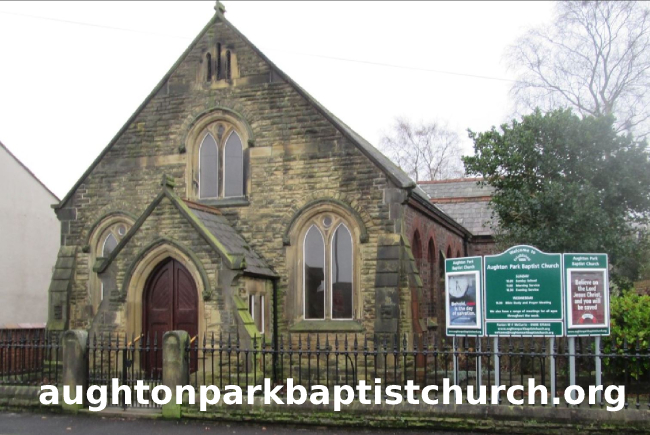
Check Todays Deals on Ebay.co.uk Your Comments:
Custom Search

|
You are in:
UK /
Ormskirk / North West
Find any Town in the UK, or Use UK map Local Google MAP for Ormskirk Check Todays Deals On Amazon.co.uk Check Todays Deals on Ebay.co.uk 
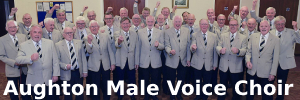
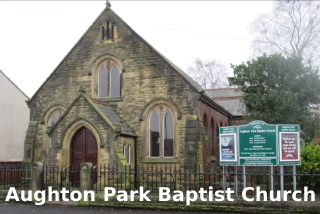
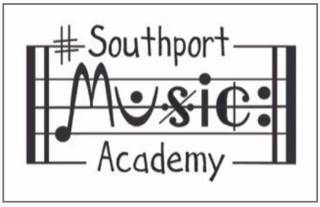
Qlocal Supports Woodlands Animal Sanctuary 
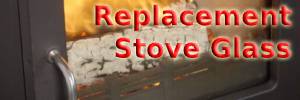
 Be Seen - Advertise on Qlocal Corporate Sponsors
Southport Piano and Music Academy Washroom Services Maximum Grounds Maintenance Southport Garden Services Ormskirk Garden Services Sanitary Bins Nappy Bins & Waste Disposal Confidential Shredding Services Legionella Risk Testing London Washroom Services Croydon Washroom Services Hounslow Washroom Services Wandsworth Washroom Services Havering Washroom Services Sanitary Bins London Clinical Waste London General Waste London Legionella Testing London Shredding London Tatoo Waste London Preston Bird Control Blackpool Bird Control
UK, Local Online News Community, Forums, Chats, For Sale, Classified, Offers, Vouchers, Events, Motors Sale, Property For Sale Rent, Jobs, Hotels, Taxi, Restaurants, Pubs, Clubs, Pictures, Sports, Charities, Lost Found
ormskirk,
ormskirk News,
|
|||||
|
|
|
|




 Reply With Quote
Reply With Quote

